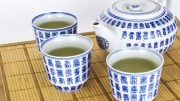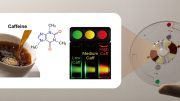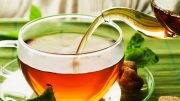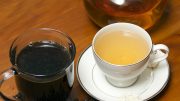
The study found that people who drank two or more cups of black tea a day had a 9 to 13 percent lower risk of mortality.
Could drinking tea lower your risk of death?
Drinking black tea may be associated with a slightly decreased mortality risk, according to a prospective cohort study. Those who drank two or more cups of tea each day had the lowest risk of death. The study was recently published in the journal Annals of Internal Medicine.
Tea is one of the most popular drinks in the world. Previous research has shown a link between tea drinking and a decreased risk of death in communities where green tea is the most commonly consumed form of tea. In contrast, published studies in populations where black tea use is more prevalent yield inconsistent results.
Using data from the U.K. Biobank, researchers from the National Institutes of Health undertook a study to investigate the links of tea consumption with all-cause and cause-specific death. They also looked at whether the relationships differed based on the use of typical tea additives (milk and sugar), tea temperature, and genetic variants that determine how quickly individuals metabolize caffeine.
The U.K. Biobank includes data on half a million men and women, aged 40 to 69 years, who completed a baseline questionnaire between 2006 and 2010. 85 percent reported drinking tea on a regular basis, with 89 percent drinking black tea.
Participants who reported consuming two or more cups of tea per day had a 9 to 13 percent decreased risk of death when compared to non-drinkers. The relationships were observed regardless of whether subjects also drank coffee, added milk or sugar to their tea, preferred tea temperature, or caffeine metabolism genetic variations. According to the authors, their findings suggest that tea, even at higher levels of intake, can be part of a healthy diet.
Reference: “Tea Consumption and All-Cause and Cause-Specific Mortality in the UK Biobank” by Maki Inoue-Choi, Ph.D., Yesenia Ramirez, MPH, Marilyn C. Cornelis, Ph.D., Amy Berrington de González, DPhil, Neal D. Freedman, Ph.D. and Erikka Loftfield, Ph.D., 30 August 2022, Annals of Internal Medicine.
DOI: 10.7326/M22-0041









LOWER MY RISK OF DEATH!? You mean it’s the Fountain of YOUTH!? HMM… either THAT or tea sales are DOWN… OR you are NCM (Non-Compose MENTIS)… maybe Grammatically Challenged…
That is really good news, I thought the risk of mortality is 100% for humans, heard only about some jellyfish that have it lower. Even if 13% chance to live forever, I will take it.
Good for you today, bad for you tomorrow and then good again and then bad again. Or was that almost every coffee study ever done, not tea? I seem to recall some study on tea with an increased chance of mouth cancer unless lightened with milk or cream. I thought it fought cancer?
But then there’s a new study recently that said previous studies on red meat were poorly done and bad science and that the more in-depth study shows it has no higher risk than things like chicken or fish for causing cancer, unlike previously thought. And all those people cutting out delicious hamburgers and steaks for NOTHING.
What about the Saccharin study that said it caused tumors in mice. Canada even banned it…until like 2014 after exhaustive studies showed what applied to mice eating 10x their own body weight in Saccharin has ZERO correlation to actual humans where no cancer has EVER been linked to it (and you excrete all of it out as waste, unlike aspartame, which your body can store in fat).
The point is one has to take these “studies” with a huge bag of salt because they’re often flawed, limited or fail to exclude variables that completely change the outcome. Another study comes to mind that suggested carbonated water or soda could cause brittle bones. The problem was many of the excessive drinkers of soda water had no good source of calcium in their diet (as opposed to say milk drinkers who naturally got it from the milk). When they filtered out people who also ate plenty of dairy or took supplements, it turned out carbonated water has ZERO effect or difference from regular water on bone density.
Caveat Emptor (let the buyer beware)